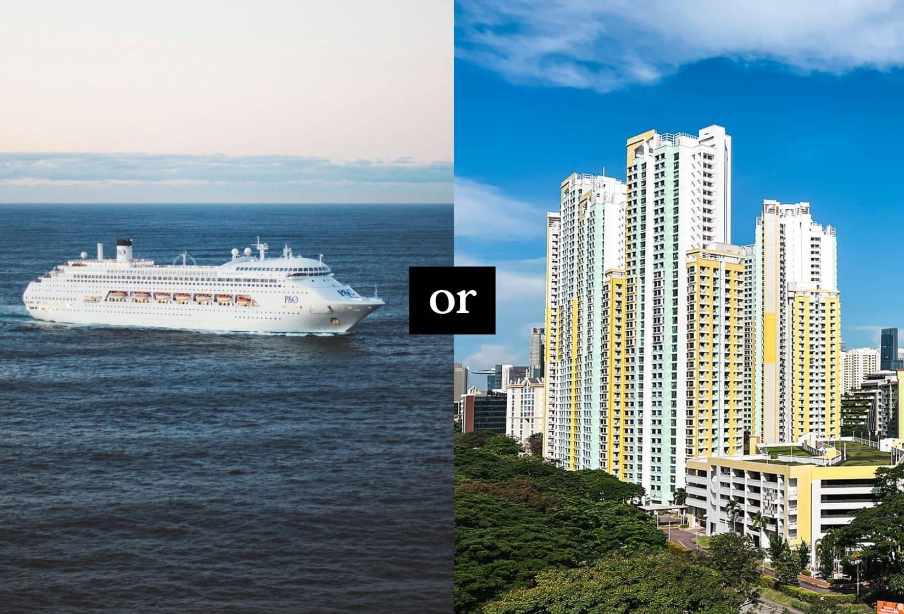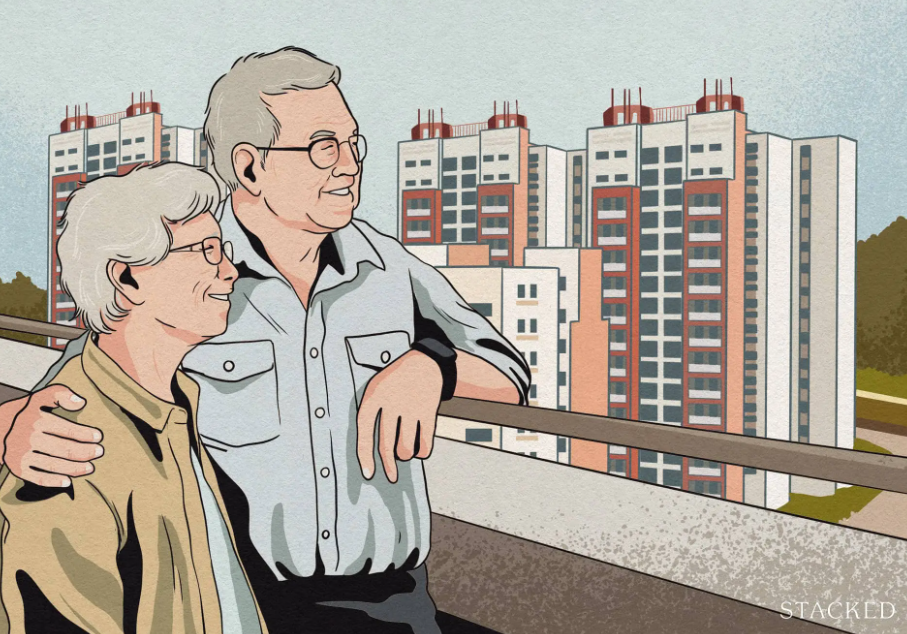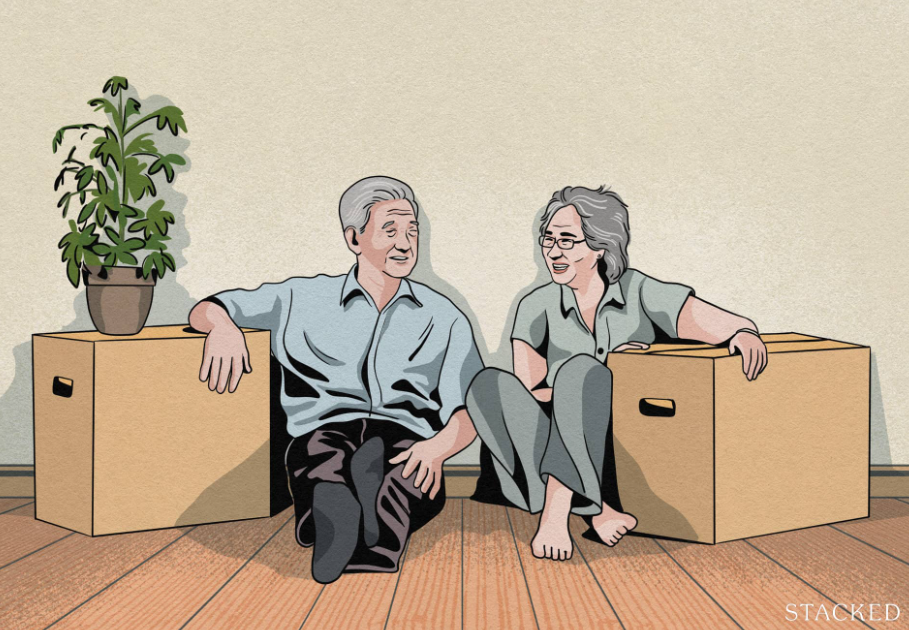Does renting for life ever make sense in Singapore?

Renting for very long periods, let alone for life, is an aberration in the eyes of some Singaporeans. In a country with a near 90 per cent home ownership rate, it's expected that — at some point in your life — you'll have a roof over your head that you can call your own.
And yet, there is a small minority of Singaporeans who are committed to being tenants for life; some by choice, others by necessity. Here are some of the reasons:
Some Singaporeans slip through the cracks, or never had the right opportunities. An inability to move up from lower-wage jobs, crippling medical bills, business misfortunes that caused them to lose their flats, etc. This article doesn't address this group, who don't choose their rental situation.
One of the main reasons to rent for life is mobility. If you're not sure you'll live in Singapore forever, then it makes sense not to tie yourself down with a property and the accompanying mortgage (also, remember that your Minimum Occupancy Period, for HDB flats, doesn't count down when you're not living in it).

These days, there are exotic options like buying a cruise ship cabin; and there's the option of renting and travelling the world, perhaps until the day you check into a nursing home.
There's an increasing tendency for young Singaporeans to choose a life path besides marrying and settling down (seven in 10 felt that's not necessary in a recent poll); and as this tendency grows, there may be more people opting for a more nomadic, travel-flexible lifestyle.
Not everyone believes in property as a retirement asset. They may not buy into the idea of struggling to pay for a condo or a big flat for 25 years, and then downgrading to life off the remaining sale proceeds at retirement.

Some believe they can obtain better returns elsewhere, such as by investing in their own business instead of buying a property, or in alternatives like stocks, bonds, etc. If they're confident they can obtain even better returns than relying on a property asset, they could be renting for all or most of their lives.
We've also heard criticism about the loss of diversification, when the bulk of your wealth is tied up in a single property. If your home accounts for the bulk of your net worth, it becomes the proverbial basket for too many of your eggs.
As one reader asked: If you wouldn't put half your net worth in one stock, why do you feel it's okay to put it into one property?
Mind you, this approach does entail having a good degree of financial literacy, as you need to be planning for retirement with other assets.
There are lifelong singles who are financially successful, but don't have any descendants to leave a legacy for. Some of them adopt a "die with $0" philosophy, where they aim to enjoy every bit of what they've earned before they pass on.
One example would be wealthy singles who choose to stay in serviced apartments, or even hotels (for the very rich) for the entirety of their lives. This spares them from concerns like home maintenance, cleaning up the place, etc. It can make more sense if you look at the numbers:
Consider that a "typical" landed property might cost around $5 million, after factoring in renovations, stamp duties, and so forth. Beyond this, there are also recurring costs like property taxes, and occasionally having to repaint the facade, fix the roof, etc.
Conversely, it might cost about $96,000 a year to stay in a fairly high-end serviced apartment. For the price of the aforementioned landed home, you could stay in such a serviced apartment for just over 52 years. And again, there's no need to worry about maintenance, property taxes, securing a loan, etc.
So if you're a lifelong single with no one to leave a house to, you might wonder if it isn't more convenient to look at hotels, serviced apartments, etc.
This does require a degree of affluence though, and most average Singaporeans would struggle to pull this off safely. You also need to worry about the rising cost of hotels, serviced apartments, etc. over the years, due to inflation.
Take an issue such as divorce: if both partners are just tenants, as opposed to co-owners of a property, the split will likely result in fewer headaches; there are fewer issues like when the property can be liquidated, a fair share for each, and so on.

On the flip side, consider marriage: if you were just renting before, it's easy to pack up and move to a bigger place together, move closer to one of your parents, etc. If you already had a home and a mortgage before that, things are much less convenient; it may take many months, or perhaps a year or two, to get everything settled and move.
(It's worse in a property downturn by the way, as you'd probably want to wait for the market to recover to sell and move).
These are just two examples of big life changes, of which you're bound to encounter many: from having to move overseas to work, to medical conditions, to changes in your career. Throughout these changes, having the option to move freely and switch between property types can make your life easier.
But for people who don't need the flexibility, owning your property is more sensible, for two simple reasons
The first is that rental rates change over time, and can be unpredictable. You don't know if the rental rates will be the same after a two-year lease, let alone what they'll be like in five, 10, or 15 years. This can make it tougher to plan, and several consecutive years of high rental might even force you back to part-time work.
To be fair, mortgage rates fluctuate as well (there are no perpetual fixed-rate home loans from banks in Singapore). But at the end of the mortgage, at least all you're left to contend with is maintenance fees. With rental, you're dealing with fluctuating costs between leases, for the rest of your life.
The second reason is that you're not building equity. With mortgages, your costs are indirectly covered by the appreciating value of your property. There are even homeowners who view their property as a form of "forced savings." This is not true with rental, where all the money you've spent has just gone into paying someone else's mortgage.
In light of this, rental for life makes sense only in niche situations. If you're affluent, a lifelong single (and sure of it), or you have a lifestyle that requires a high degree of mobility/flexibility, then renting indefinitely might work for you.
But if you've got a more conventional lifestyle, then frankly most of the advantages of renting don't apply to you. E.g., if you have a long-term career that keeps you in Singapore, then of what use is the "flexibility" in renting? Your career is tying you here anyway, so you might as well buy a long-term housing asset.
ALSO READ: I've been renting since I was 20 in Singapore, here's why I don't regret it
This article was first published in Stackedhomes.